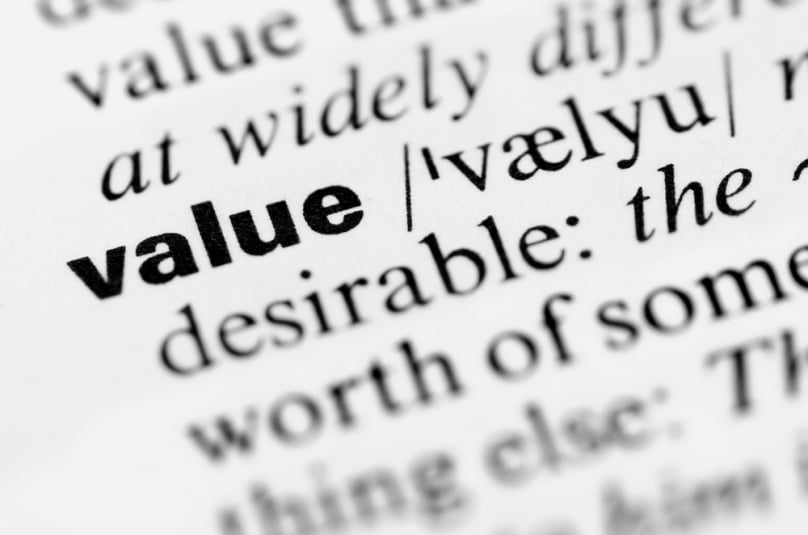
I wrote previously that many legal challenges to groups and individuals that followed the legalisation of same-sex marriage in Canada will inevitably come to Australia.
This week I’d like to look at the way language is manipulated in the public debates surrounding marriage and the so-called “safe schools” debates.
First of all it is important to note that confused language can have serious social consequences.
Take the new language of good and evil that utterly confuses politics, law and education in our time: I refer to “values”. The language of “values”, used everywhere and by everyone – religious or non-religious, undercuts the possibility of speaking of “right” or “wrong”.
This point has been made by many philosophers but, for reasons related to schooling (one cannot call it education), has not been understood by those leaders in politics, education and religion who continue to use this “values language” as if it is a moral language.
The general public, as well, is virtually completely unaware that when they speak of “values” they do not, in fact, speak about something that is good, but, rather, something that is relative to themselves and of no guidance whatever to the world around them.
A Canadian philosopher of another generation, George Grant, once said that “values language is an obscuring language for morality used when the idea of purpose has been destroyed”. This sentence should be written down and thought about. I ask my students to do just that.
Values is not a language about objective goodness and meaning such as used to be understood in relation to “virtues”. As such, “values language” is of no use in education or any other area of society and yet it is the all too dominant language used by those in politics (“Australian values”) or even the Catholic Church (“Catholic values”) as if they mean something clear.
They don’t since they might mean something completely different to any particular Australian or any particular Catholic since they are entirely about personal choices rather than the quality of the thing we deem to be a “value.” Some will say “but we have to use this language because it is the language people use” or “all language is ambiguous” – both arguments fail when we realise the implications of continuing to use this ambiguous and relativistic language.
For educated Catholics of any age but our own, the Christian life was understood in relation to virtues* – four cardinal and three theological and this is still the language of the Catechism of the Catholic Church and this language had both a personal and, unlike “values” an objective reality. For a long time educators have failed to either learn this language or transmit it and so it has been forgotten.
A necessary part of any education about “justice” (a cardinal virtue) therefore is first of all showing the limitations of “values” language (where “you have yours and I have mine”) and the impossibility of getting to a meaningful shared notion such as the civic virtues necessary to be a citizen of Australia using the “dog’s breakfast” of “values” language.
Virtues, unlike “values” are both personal and shared. So, with respect to “courage” (to take one example) I must learn what courage means and apply the category to understand myself – whether I am a coward or someone who is “rash” and insufficiently reflective; if I am timid or a coward then to be virtuous I must become more courageous. If I am rash by nature then I must use wisdom and moderation (two more of the four cardinal virtues) to be more virtuous as well. This is a long way from the vagaries of “values” and “feelings”.
This is not complicated or difficult to teach but to teach it one must know it and this knowledge has been largely lost under an ocean of “obscuring” values language. This is true for other key terms of today some or all of which will be seen in current debates about bullying and same-sex marriage.
These debates use vague language in ways that manipulate the population. Abstract language disconnected from real contexts use “equality”, “discrimination”, “homophobia”, “heterosexism”, even “diversity” and “hatred” without any context so that we can see what the political goals are of the use of such language. Ask a current politician: should “traditional marriage” be made illegal?
If the answer is “no” then the response should be “all right then, put in writing and law – that advocating for traditional marriage will not be threatened or made illegal in Australia”. If politicians do not want to give those assurances then we ought rightly to suspect their motives under the haze of “equal marriage”. Equality can only be understood in relation to context and in a free and democratic society that means allowing genuine difference and diversity to co-exist without hindrance or reprisal. Vagueness uses the terms then tries to employ law to force agreement.
Consider also the vague language of “safe schools”; who can oppose safety? But not so fast. What is meant by this term in a specific context? That’s the real issue. For a school to be safe it also has to be fair and this means that parents, who are the primary educators of their young (they only delegate this authority to the school system) must be consulted about the application of the curriculum that is being used.
Are they? It doesn’t seem so. The new curriculum seems to be less about restricting bullying and more about pushing a particular agenda about sex. But sex, like marriage, is something that families ought to have a right to their own viewpoints about.
“Values”, “equality”, “safety” and so on can all be used to mask increasingly aggressive ideologies. Safety and equality need to be just and fair and we should demand nothing less from educators, politicians and, eventually, judges; clear language within contexts that respect difference will help us towards genuine justice: vagueness provides the camouflage for duplicity.
